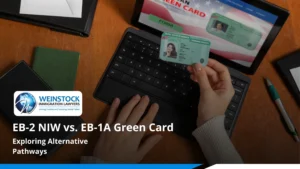New Covid 19 Travel Requirements: What you need to know
Beginning TODAY (Monday, November 8, 2021) Travel restrictions that were put in place during the pandemic end after more than a year and a half. Travelers from around the world can resume flights to the U.S. as long as they are vaccinated.
On October 25, 2021, President Biden issued a proclamation ending travel bans that restricted the entry of nonimmigrants present in China, Brazil, India, Iran, South Africa, Ireland, the United Kingdom, and the Schengen Area.1 The proclamation also created a new rule, effective November 8, 2021, that requires all adult nonimmigrant travelers entering the United States via air travel to be fully vaccinated against COVID-19, with limited exceptions. Similarly, non-essential travel for fully vaccinated individuals across land and ferry borders will be permitted as of November 8. Essential travel for unvaccinated individuals across land and ferry borders will be allowed until January 21, 2022, at which time the vaccine requirement will be imposed for all travelers.
What Does Fully Vaccinated Mean?
- You must have received a vaccine approved or authorized by the Food and Drug Administration (FDA) or World Health Organization (WHO), which currently includes the following vaccines: Janssen/Johnson & Johnson (Single Dose), Pfizer-BioNTech, Moderna, AstraZeneca, Covishield, BIBP/Sinopharm, and Sinovac.
- You are considered fully vaccinated two weeks after receiving the last dose of a multi-dose, or the first dose of a single dose approved vaccine. Receipt of doses from any two different approved vaccines is acceptable.
What Proof Is Required?
Before boarding a flight to the United States, adult nonimmigrant travelers must provide proof of vaccination to Verifiable digital or paper records: This includes, but is not limited to, vaccination certificates or digital passes accessible via QR code (such as the UK NHS COVID Pass and the European Union Digital COVID Certificate). Non-verifiable paper records: A paper vaccination record or a COVID-19 vaccination certificate issued by a national or subnational level agency or by an authorized vaccine provide (such as the Centers for Disease Control and Prevention (CDC) vaccination card). Non-verifiable digital records: Digital photos of vaccination card or record, or a downloaded record or vaccination certificate from an official source (e.g., public health agency, government agency, or other authorized vaccine providers), or a record shown on a mobile phone app without a QR code.
Airlines will verify that the form of proof includes a name and date of birth that matches other identification documents, is from an official source within the country the vaccine was issued and shows full vaccination. You must confirm with the airline if translation is required for documents, not in English. For land border and ferry crossings, CBP will require similar proof of vaccination and that the traveler attests to their reason for travel.
Who Is Not Required to Be Vaccinated?
Certain travelers are not required to show proof of vaccination to board a flight to the United States. At this time, these include U.S. citizens, U.S. nationals, Legal Permanent Residents (Green Card Holders) Children under 18, Those who participated or are participating in CDC-approved clinical trials Those for whom approved COVID-19 vaccination is medically contraindicated as determined by a licensed physician Those granted humanitarian or emergency exceptions by the Director of the CDC Citizens of countries where less than 10% of the population is vaccinated, and who seek entry pursuant to a nonimmigrant visa (not including B-1/B-2 travelers), Members of the U.S. armed forces and their spouses and children. Those whose entry would be in the national interest, as determined by the Secretaries of State, Transportation, or Homeland Security or their designees Diplomats or individuals on official government travel (A-1, A-2, C-3, E-1 (TECRO or TECO), G-1, G-2, G-3, G-4, NATO-1 through NATO-4, NATO 6) Individuals invited by the United Nations Sea crew members (C-1 and D) and Airline crew members.
Is a Negative Test and/or Quarantine Required?
All travelers over the age of two, vaccinated or not, must have a negative COVID-19 test prior to boarding a flight bound for the United States. If you are fully vaccinated, you must show proof of a negative COVID-19 test taken no more than three days prior to your travel. If you are not vaccinated, you must show a negative COVID-19 test taken no more than one day prior to your travel. If you have recently recovered from COVID-19 in the past 90 days, you must show proof of recovery and provide a letter from a licensed healthcare provider or public health official.If you are not vaccinated, you will also be required to attest that: You will be tested 3-5 days after arrival in the United States unless you recovered from COVID-19 within the past 90 days; You will self-quarantine for a full seven days unless you have recovered from COVID-19 within the past 90 days, and You will self-isolate if the post-arrival test is positive or if you develop COVID-19 symptoms. If you are unvaccinated and plan to be in the United States longer than 60 days, you must attest that you agree to be vaccinated against COVID-19, and you have arranged for vaccination within 60 days of arriving in the United States unless you are eligible for an exemption from receiving the vaccine.
If you need to learn more about COVID-19 travel requirements, please contact us.
Related posts

Exploring Alternative Pathways: EB-2 NIW vs. EB-1A Green Card
Summary Two of the most sought-after green card options for highly qualified professionals are: EB-2 National Interest Waiver (NIW) EB-1A Extraordinary Ability visa Both allow

TN Visa for Remote or Hybrid Work: Navigating USMCA Rules
Summary If you’re a Canadian or Mexican entrepreneur living in the U.S. or planning to launch a business here, you may be wondering: Can I

Impact of USCIS Policy Updates on EB-2 NIW Petitions: What You Need to Know
Summary The EB-2 National Interest Waiver (NIW) offers a pathway to U.S. permanent residency without employer sponsorship, ideal for professionals and skilled workers. Recent USCIS
